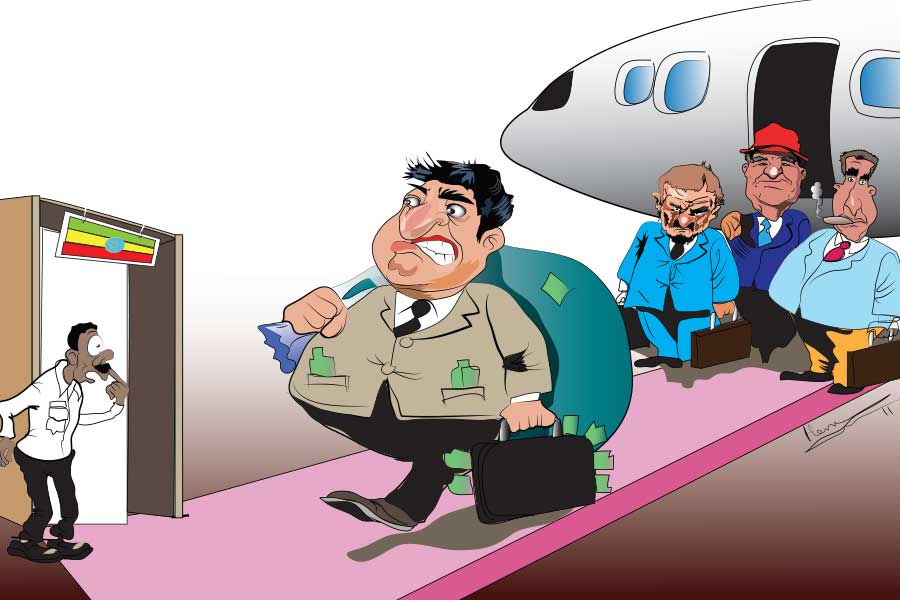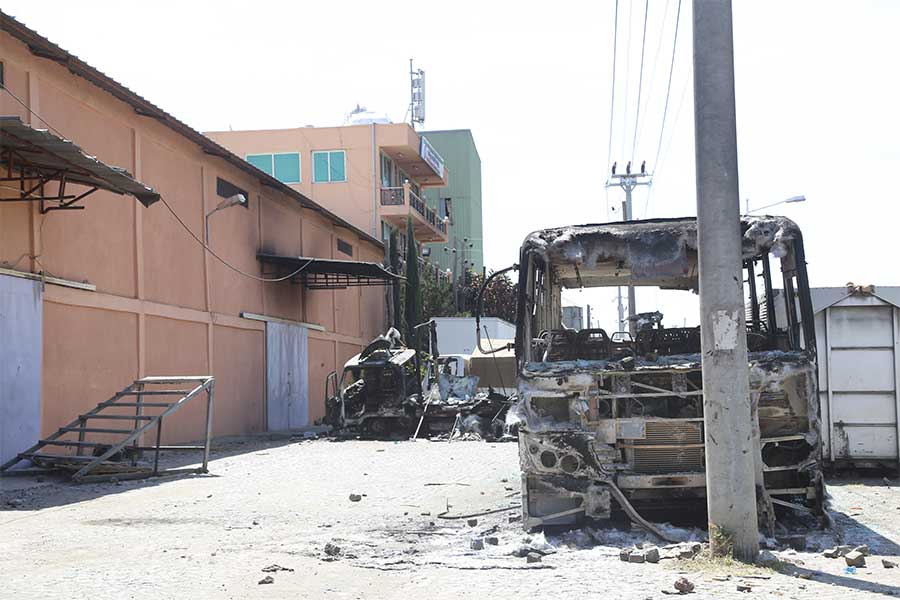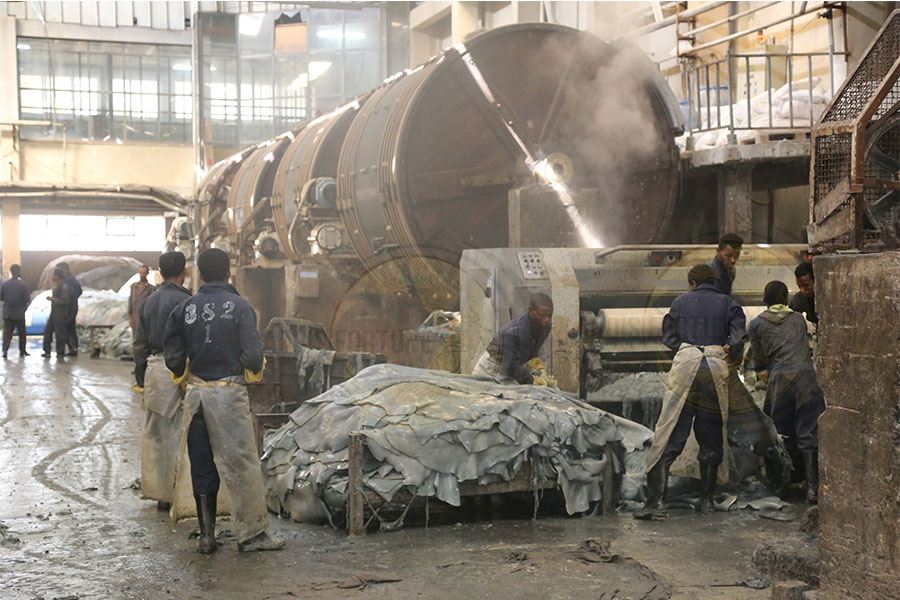
Agenda | Jul 27,2019
A surge in aviation insurance rates and property values have enabled the state-owned Ethiopian Insurance Corporation (EIC) to control more than half of the insurance market share, helping it regain the status it had lost for over a decade. The latest performance marks a huge leap from its lowest-ever market share of 38pc registered three years ago - later increased by 10 percentage points last fiscal year.
The Corporation has recorded a premium of 5.5 billion Br from both life and non-life insurance policies in the last nine months, portraying a one billion Birr increase compared to the same period last year. It could be taken as a remarkable achievement surpassing the entire private insurance industry mobilised by 300 million Br. However, the 17 private insurance firms have registered a 16.1pc increase in their premium, but nine percentage points lower than the growth recorded by EIC.
Even if both [private insurers and EIC] grow at the same rate, the Corporation was required to put more efforts into having a high premium rate in the industry, according to Mengistu Meharu, deputy chief executive officer of the EIC.
"What we`ve achieved is outstanding, and it's tough to make further gains in market share,” Mengistu told Fortune.
The surge in the amount of premium collected come from Ethiopian Airlines. The two accidents involving the Boeing 737 Max planes two years ago have increased the premium for aeroplanes, according to industry sources.
The galloping inflationary pressure in the economy, pushing property value upward, has also played a much larger role in helping the insurance industry gain ground.
Awash Insurance Company (AIC) leads the pack among its peers, collecting a premium of 828.1 million Br from general and life insurance, although the latter contributed one-eighth. It controls 6.7pc and 19.1pc of the general and life insurance markets, respectively. The latest in the bloc, Zemen Insurance, has just 0.1pc of the market share. United Insurance Company (UNIC) follows Awash, with a written premium of half a billion Birr from general lines of business, accounting for 4.7pc of the industry aggregate.
Even though UNIC`s premium rose by almost 17pc, its market share exhibited a one percentage point decline.
Meseret Bezabeh, chief executive officer (CEO) of UNIC, blames unfair competition in the market, making the state-owned insurer bigger and holding private firms back from increasing their share.
“While private insurance firms, including us, are on our own, EIC enjoys preferential treatment," she told Fortune.
There is no law forcing public institutions to do business solely with the state insurer; but, a letter of advice issued two decades ago by a minister in charge of state enterprises supervision remains an old habit too hard to die. It is only the Ethiopian Roads Authority (ERA) that bucks the trend.
According to a senior executive at the Africa Insurance, the blame should partly be on the private insurance firms` limitations.
“There is no single private insurance firm that has the capacity to give coverage to those in the aviation sector, particularly Ethiopian Airlines," he told Fortune. "Reinsurance companies are not also willing to share the risk unless EIC covers it.”
Meseret begs to differ.
Except in a few instances, the private insurance companies have never been offered the prospect to give coverage, according to the CEO.
The Ethiopian insurance industry is characterised by cutthroat competition. It is largely dominated by the non-life segment of the market, which accounts for more than 95pc of the gross written premium. The industry accounts for below one percent of the country’s GDP, while very few products have been introduced to the market over the last decade.
“We've introduced no new product last fiscal year, though we have more than 60 policies on our shelves,” said Mengistu of EIC.
For Ebsa Mohammed, an expert in insurance and manager of Alpha Consultancy, the Corporation gaining more market share despite introducing no new major product illustrate the preferential treatment it gets from the government.
“It's an industry suffering from price-cutting, among other unethical activities," observed Ebsa. "Saving it requires creating a level playing-field where gains are determined by market forces.”
PUBLISHED ON
May 08,2021 [ VOL
22 , NO
1097]

Agenda | Jul 27,2019

Sunday with Eden | Jul 01,2023

Viewpoints | Apr 22,2022

Fortune News | Sep 19,2020

Fortune News | Mar 18,2023

News Analysis | Jan 05,2020

Radar | Dec 11,2021

Viewpoints | Oct 12,2019

Featured | Jun 08,2019

Commentaries | Oct 01,2022

Dec 22 , 2024 . By TIZITA SHEWAFERAW
Charged with transforming colossal state-owned enterprises into modern and competitiv...

Aug 18 , 2024 . By AKSAH ITALO
Although predictable Yonas Zerihun's job in the ride-hailing service is not immune to...

Jul 28 , 2024 . By TIZITA SHEWAFERAW
Unhabitual, perhaps too many, Samuel Gebreyohannes, 38, used to occasionally enjoy a couple of beers at breakfast. However, he recently swit...

Jul 13 , 2024 . By AKSAH ITALO
Investors who rely on tractors, trucks, and field vehicles for commuting, transporting commodities, and f...

Jul 5 , 2025
Six years ago, Ethiopia was the darling of international liberal commentators. A year...

Jun 28 , 2025
Meseret Damtie, the assertive auditor general, has never been shy about naming names...

Jun 21 , 2025
A well-worn adage says, “Budget is not destiny, but it is direction.” Examining t...

Jun 14 , 2025
Yet again, the Horn of Africa is bracing for trouble. A region already frayed by wars...